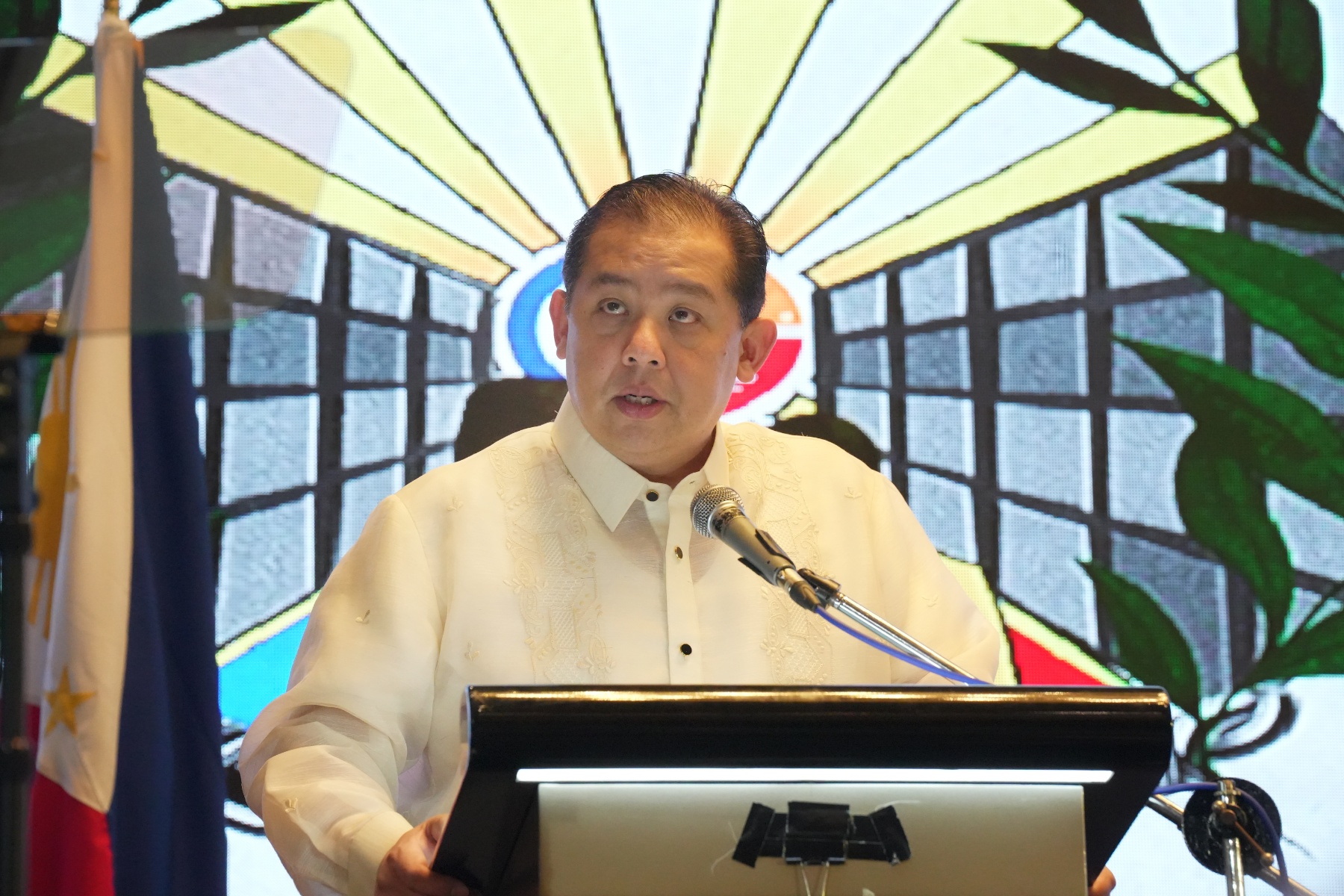
President Ferdinand R. Marcos Jr. (File photo)
MANILA – Innovative policies and initiatives are vital in addressing the challenges plaguing the country’s justice system, President Ferdinand R. Marcos Jr. said Wednesday.
During the first National Jail Decongestion Summit at the Diamond Hotel in Manila, Marcos called on the Justice Sector Coordinating Council (JSCC) to take advantage of the technology and innovative practices to make the justice system “efficient and effective.”
The JSCC is composed of the Supreme Court (SC), the Department of Justice (DOJ) and the Department of the Interior and Local Government (DILG).
“This gathering is most welcome as it demonstrates the commitment of the entire government to expedite the processing of criminal cases and to alleviate the chronic problem of jail congestion. Indeed, it would require a whole-of-government approach to ensure the efficient, effective and compassionate administration of justice in the country,” Marcos said in a speech delivered by Executive Secretary Lucas Bersamin.
“I urge the JSCC to pursue the streamlining and digitalization of your frontline and backend services. By embracing technology and innovative practices we can enhance our efficiency, reduce delays and ensure swift and fair legal procedures,” he added.
Marcos said the Philippines must also learn from the successes and best practices of other countries where innovative solutions have been implemented to address the challenges in the justice system.
He expressed confidence that the discussions in the summit would pave the way for better policies and initiatives that will address the root causes of the problems in the justice system.
“In our pursuit of a Bagong Pilipinas (New Philippines) where communities and government institutions have respect for the law and human rights, it is vital that we work together to come up with measures to decongest our jails and improve the conditions of persons deprived of liberty,” Marcos said.
“Rest assured this administration remains steadfast in its commitment to support collaborative efforts between the executive and the judiciary,” he added.
Marcos urged the participants in the summit to share their insights, experiences and best practices, saying collaborative efforts would help build a society where “justice is swift, fairness is paramount and compassion prevails”.
Marcos skipped the event because he had to undergo a five-day isolation after contracting the Covid-19.
Led by the JSCC, the two-day summit brings together various government agencies and other stakeholders to tackle challenges in the penal system and ease the congestion problem in jails across the country through a whole-of-government approach.
The summit features four plenary sessions, parallel workshops, best practices from other countries and testimonies from persons deprived of liberty.
The JSCC also plans to unveil the “Jail Decongestion Concept Note,” a document that sets the stage for the conference by presenting the current state of affairs and establishing the foundation for the agenda.
House key proposals
Speaker Ferdinand Martin G. Romualdez said Wednesday that the House of Representatives is ready to do its part in the collective effort to confront and resolve the pressing issue of jail congestion,
In his message at the ational Jail Decongestion Summit, Romualdez pointed out the congestion of Philippine jails is not merely a logistical or infrastructural problem but also a profound human rights issue.
“As we move forward, it is crucial to recognize the dire situation of persons deprived of liberty (PDLs). Many languish in overcrowded jails, not due to the severity of their crimes, but because of prolonged processes and inadequate infrastructure. This reality calls for our immediate and decisive action,” he said.

“To address these challenges, the House of Representatives is ready to consider and will seriously study several key proposals that merit serious contemplation and support,” Romualdez said.
The key proposals include the Review of Crime Classification; Diversion of Adult Offenders; Unified Penology Act and Department of Corrections and Penology; Law on Reintegration and Psychosocial Rehabilitation; Amendment of the Recognizance Act of 2012; and Strengthening the Commission on Human Rights (CHR).
Romualdez said the House is amenable to a comprehensive review of the classification of crimes as “capital” and “non-bailable.”
“The Revised Penal Code's classification system, almost a century old, needs an overhaul. This review will assess the deterrent effect of these classifications and consider the decriminalization of certain offenses like libel, abortion, and dueling. Our goal is to ensure that punishments are proportionate to the gravity of the crimes committed,” he said.
Building on the success in diverting children in conflict with the law, he said the House also advocates for the enactment of a law that extends similar diversionary measures to adult offenders.
He said this would involve alternatives to incarceration for minor offenses and first-time offenders, reducing unnecessary admissions into the penal facilities.
On the third proposal, Romualdez said the House recognizes the need for a more unified and efficient management of the country’s prison facilities.
“Therefore, we will review and examine your proposal for the creation of a Unified Penology System under a dedicated Department,” he said.
Romualdez also noted the need for a new law focusing on reintegration and psychosocial rehabilitation to provide essential support for released offenders, aiding in their return to society and reducing recidivism.
He said the House is also considering amendments to the Recognizance Act to make it more accessible and effective.
The House, he added, is also in agreement with the proposal of strengthening the “Commission on Human Rights to act as the National Preventive Mechanism against Unjust Incarceration,” which will involve equipping the CHR with data and analysis tools to monitor and address trends in incarceration and releases.
Romualdez noted that these proposals represent a holistic approach to a complex problem, and reflect a collective commitment to a justice system that is not only efficient and equitable but also humane and respectful of the rights and dignity of every Filipino. (PNA)
